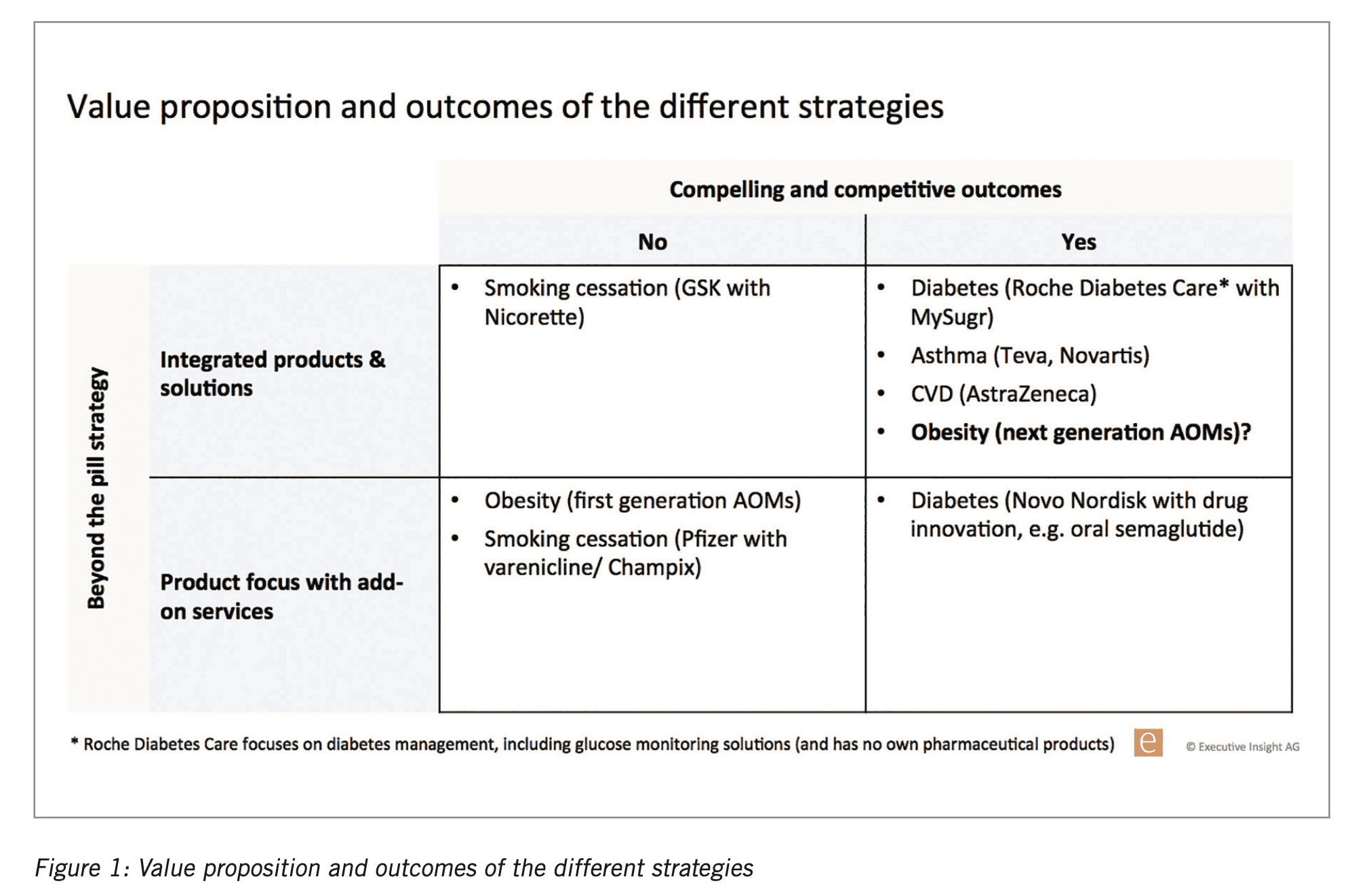
“Drugs don’t work in patients that don’t take them” Everett Koop, former US Surgeon General.
This famous quote from 1985 has perhaps never been more relevant. It is estimated that non-adherence to medication is associated with almost 200,000 deaths in Europe each year, as well as a staggering cost of EUR 80-125bn. With approximately half of all adults worldwide living with a chronic condition and requiring regular medication, it is understandable why changing behaviour around adherence is a major focus.
It speaks to a wider challenge in healthcare to bring about behaviour change. From public advisory campaigns to combat obesity or cardiovascular disease to legislative curbs on drinking and smoking, attempts to persuade people to change their behaviours are commonplace, but often ineffective.
Why? People do not necessarily resist change, but they do resist being changed (Laverack). Long-term change must come from the individual. There are said to be three key drivers of behaviour change: motivation and capability, which are internal conditions, and opportunity, which is an external condition.
So when external entities – whether they are governments, companies or otherwise – attempt to encourage behaviour change, they can often provide the opportunity, but influencing the motivation and capability is much harder.
It has become clear that provision of information and advice alone is rarely sufficient and that more comprehensive solutions are required to bring about meaningful, long-term behaviour change. And much of that is now being driven by the pharmaceutical industry.
Going way beyond the pill
Behaviour change is a major focus for pharmaceutical companies. Poor adherence for example can completely undermine the value of medication – one study showed that poor adherence with osteoporosis medications results in around a 50% reduction in the potential benefits observed in clinical trials and a doubling of the cost per QALY gained from these medications.
This is not in anyone’s interest. Patient outcomes are worse, the healthcare system wastes money and pharmaceutical companies fail to gain reimbursement and lose out on sales.
Indeed, global revenue forfeiture is estimated to be $637bn, or 37% of the $1,520bn global annual total potential revenue. To ensure better outcomes, companies are increasingly moving ‘beyond the pill’ to provide services and add-ons that can help to effect behaviour change, whether that’s better adherence to their medication or changing lifestyle factors to complement that medication.
Several years ago, these often took the shape of simple treatment trackers or reminders to aid adherence, but today pharmaceutical companies are collaborating with medical and digital technology companies to develop advanced, connected solutions, such as wearables, digital pills that can track whether a medication was taken, and apps that make treatment simpler and more effective.
The main disease areas of focus have understandably been chronic diseases, including obesity, diabetes, cardiovascular disease (CVD) and chronic obstructive pulmonary disease (COPD).
It’s all about the outcomes
So, how are companies faring? We are seeing a range of solutions, which can broadly be divided into those that are integrated and effectively packaged with the product and those that are product focused with add-on services. To help us analyse which types of solutions have been most effective to date, we can divide the solutions again, between those that have delivered compelling and competitive outcomes, and those that have not (see Figure 1 below).

We have populated the matrix with example solutions across five areas and highlighted some below:
Smoking cessation
- GSK developed companion solutions for consumers using its Nicorette products, including MyQuitBand, which syncs with the MyQuit app to help create a customised Quit Plan that provides support and advice. However, there is little evidence of meaningful impact on smoking cessation
- Meanwhile, for non-nicotine pharmacotherapies with proven efficacy, such as Pfizer’s Champix (varenicline), their impact on effecting behaviour change depends almost entirely on reimbursement. In the UK, for example, Champix peaked at 200,000 prescriptions in 2012 when reimbursed through smoking cessation services. This funding is now significantly reduced, as are prescription numbers, meaning the impact on behaviour change at the population level is severely impacted.
Diabetes
- The mySugr app, developed by Roche, is designed to make logging of metabolic control data more appealing and useful in day-to-day life. Data has shown that consistent use of the mySugr app may contribute to significant improvements of blood glucose control in high-risk populations, although it is questionable whether the general population would engage with the app to the same degree
- Meanwhile, Novo Nordisk has launched Rybelsus (semaglutide) oral tablets to improve control of blood sugar – but specifically alongside diet and exercise. The behaviour change essentially is being ‘prescribed’ alongside the medication.
Asthma
- Historically, asthma patients were responsible for recording their own symptoms and exacerbations, which can be difficult to remember over long periods. Novartis entered a partnership with Propeller to utilise the company’s sensor for the Enerzair Breezhaler inhaler, where it can collect medication data and send that information to a corresponding app. The Propeller platform has been shown to increase medication adherence by up to 58%, increase asthma control by up to 63%, and reduce asthma-related emergency department visits and hospitalisations by as much as 57%.
Cardiovascular disease
- AstraZeneca developed a diet and lifestyle support programme (Fit2Me), initially focusing on diabetes which has been extended to cardiovascular health. Importantly, motivation comes from digital coaches who shepherd people through the process of improving their health and fitness while celebrating success along the way. Such hands-on coaching is widely recognised as a key success factor in behaviour change initiatives.
Obesity – the ultimate need for behaviour change
Obesity is one of the most visible but relatively neglected public health challenges. It is the cause of several serious health conditions and prevalence continues to grow. Recently some governments have ramped up their response to obesity after it emerged that people who are clinically obese are 40% more likely to die of COVID-19.
However, tackling obesity is extremely challenging, as it is a complex condition with behavioural, psychological, socioeconomic and environmental components to consider.
There is no ‘magic pill’. Anti-obesity medications work best when combined with a lifestyle programme. The first generation of anti-obesity medications have encountered significant problems with adherence to the combination of medication and lifestyle change and therefore large variability in patient outcomes. This in turn impacted reimbursement and access.
Programmes involving the direct involvement of professionals (eg, lifestyle coaches, nutritionists, fitness coaches and psychologists) are associated with increased success in obesity. However, these are typically not reimbursed, meaning only a small minority can access them.
For the newer generation of anti-obesity medications that are emerging, provision of this level of support, albeit remotely, seems essential to fill the gaps left by lack of access and reimbursement to existing lifestyle programmes.
These will likely be digital solutions providing support for physical activity, food intake tracking, balancing energy intake and expenditure; facilitated virtual communities; monitoring of treatment adherence and success; and remote coaching and support lines. Maintaining engagement in the longer term is crucial to success, which is why provision of coaching and building peer communities is so important.
The key for manufacturers is to clearly demonstrate the link between the combination of product and programme and positive outcomes. Provision of both the product and the support programme as a single substantiated package is highly likely to increase likelihood of reimbursement.
A shift in behaviour could be very beneficial for pharma
With chronic diseases such as cardiovascular disease, diabetes and obesity on the rise, non- adherence to prescribed medicines and lifestyle changes costing hundreds of thousands of lives and billions of Euros every year, and with over one billion people still opting to smoke worldwide, it is clear that encouraging behaviour change has never been more important.
While governments still have a vital role to play with public health campaigns, it is clear that there is a major opportunity for the pharmaceutical industry. Companies can help to design solutions that tap into all three key drivers of change – motivation, capability and opportunity. These solutions should be incorporated into clinical trials to prove the value of the combined approach.
There are several positive implications of this approach for pharmaceutical companies. As well as reducing barriers to market for the company, it will increase barriers for competitors, who will need to prove their product against the whole package rather than the medicine alone. It will likely prolong the life cycle of the product – the longer patients use the behaviour change solutions, the more likely they will be to stick with the combined integrated product/service offer.
Finally, it may provide significant therapy area leadership opportunities, establishing the company as a pioneer in the area. For companies focusing on chronic diseases, the move towards providing proven support packages in this way is a behaviour change that they must fully embrace.




